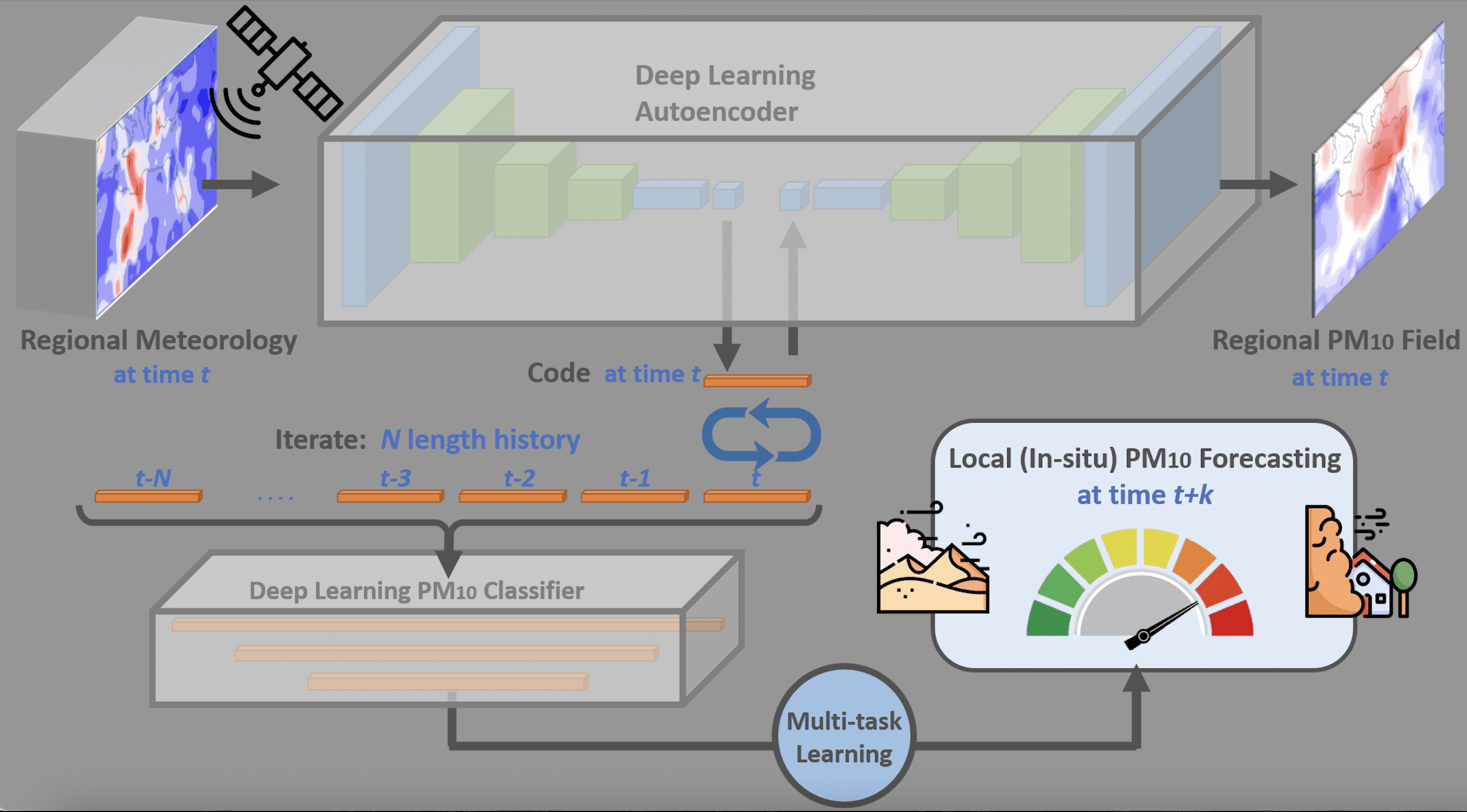Earth Science, like other disciplines, is undergoing a data revolution. Unprecedented datasets generated by satellites, earth observations, physics-based and in-situ measurements are more available than ever. Artificaial Iintelligence (AI), which has already revolutionized many disciplines, holds tremendous potential to transform this data into new scientific insights and improve the forecast range and accuracy. However, Earth's complex processes and the constraints of real-world Earth data pose some unique challenges to AI that are mostly unsolved.
Our group is at the forefront of cutting-edge research, leveraging artificial intelligence (AI) methodologies to enhance various weather events' scientific understanding and forecast capabilities. With a solid commitment to developing explainable AI architectures, the group aims to bridge the gap between advanced machine learning techniques and the physical or chemical understanding of earth processes.
Our research spans various fields in the earth sciences, including dust storm forecasting, extreme precipitation events, flash floods, sinkhole formation, optical disorders caused by aerosols, and 3D mapping of air pollutants, along with more theoretical studies of AI in earth sciences, such as efficient augmentation of meteorological data, foundational weather models, generative models of atmospheric data, and physics-inspired neural networks.

Using AI methodologies to enhance various weather events' scientific understanding and forecast capabilities
